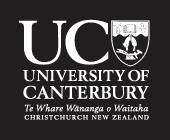Assoc Prof M Staiger
Applications accepted all year round
Competition Funded PhD Project (European/UK Students Only)
About the Project
Electrospinning is highly suited for nanofibre manufacture using large biological molecules as the raw material. The process can be run a room temperature in aqueous solution, and does not require the use of coagulation chemistry. Therefore the bioactive nature of the raw material need not be degraded during processing. This bioactivity can be used in a number of applications including filtration and bioreactors. However, some biological origin materials tend to form unspinnable gels before a sufficient level of molecular cohesion to form spun fibres is reached. The aim of this project is to produce a nanofibre spinning machine that can cope with these intractable materials.
The position thus requires an imaginative experimentalist to characterise and develop a novel electrospinning machine. The machine will produce spun nanofibres from marine and cereal origin raw materials. The candidate should have a demonstrable interest in materials science, rheology and process development.
Funding Notes
Candidates must hold a 1st class bachelor degree in engineering to be considered. 1st class materials, chemical and mechanical engineers will be considered.
Top candidates will be encouraged to apply for a UC Doctoral Scholarship at:
http://www.canterbury.ac.nz/ScholarshipSearch/ScholarshipDetails.aspx?ScholarshipID=6935.127.
As a guide, a GPA of at least 7-8 is required to have a chance in obtaining a UC Doctoral Scholarship.
Candidates with a background in biochemistry/electrochemistry and an interest in materials science will also be looked upon favourably (Science students must already hold a 1st class Masters degree).
References
Supervisory team:
Dr. Mark P. Staiger
Materials Engineering Group, Department of Mechanical Engineering, University of Canterbury, Christchurch, New Zealand
Dr. Nick Tucker
Plant and Food Research, :incoln, Christchurch, New Zealand

 Continue with Facebook
Continue with Facebook

